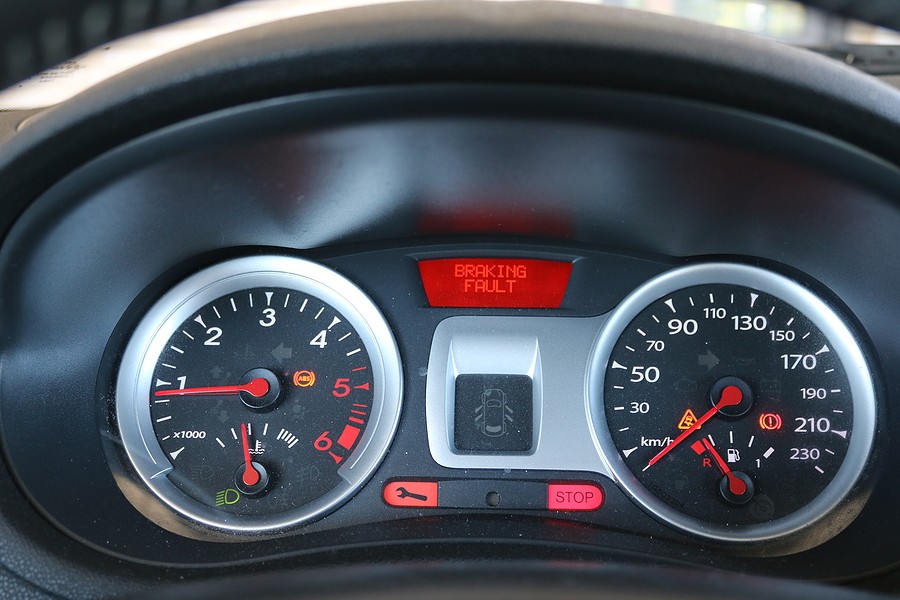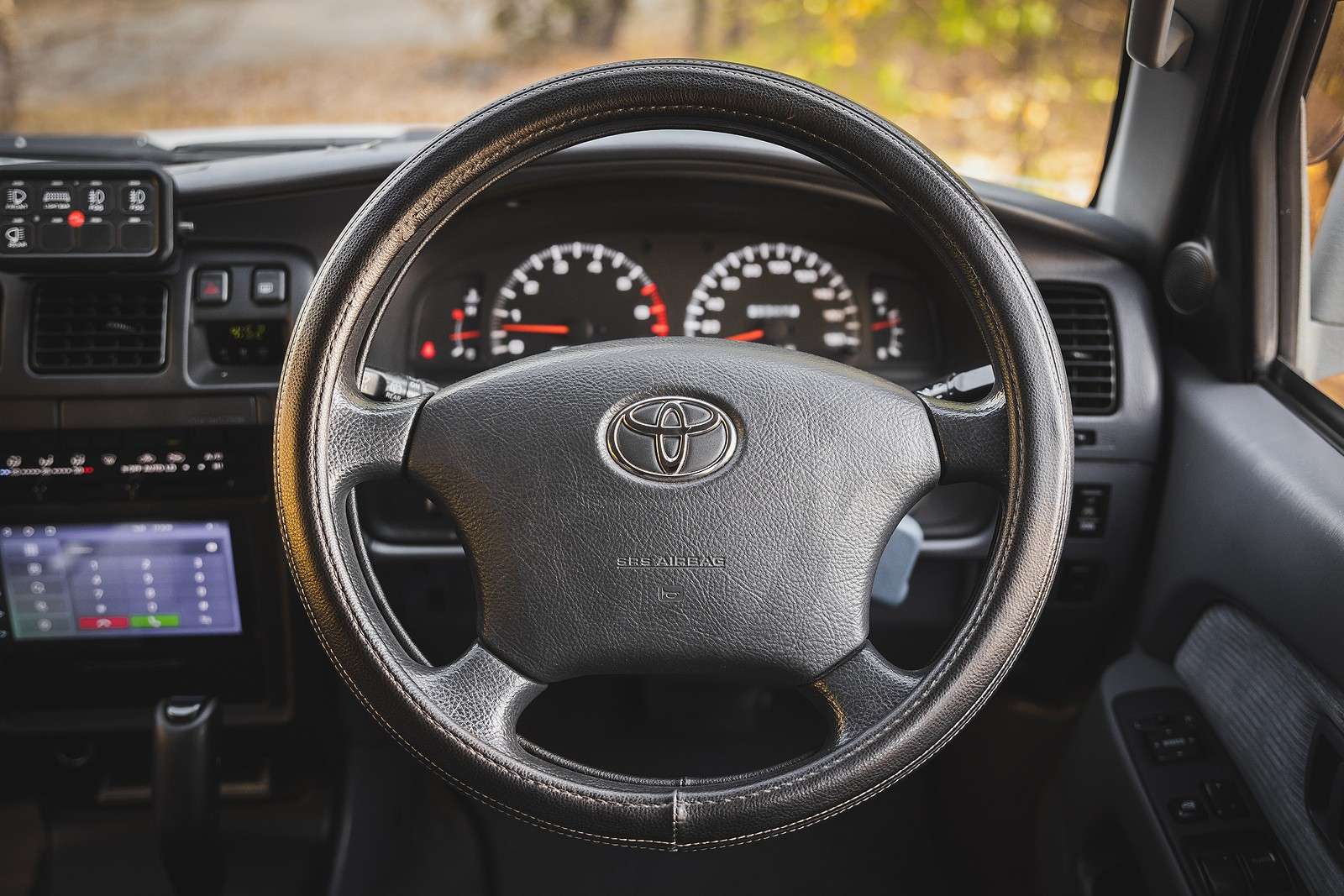If your Ford vehicle displays a “Hill Start Assist Warning,” it typically indicates a problem with the system that prevents your car from rolling backwards on a slope. Common causes include low car battery, issues with the Electronic Stability Control (ESC) or Traction Control System (TCS), or extreme vehicle angles. Immediate attention may be needed to ensure safe driving on inclines.
Introduction to Hill Start Assist in Ford Vehicles
Understanding Hill Start Assist (HSA)
HSA is a safety feature in modern Ford vehicles designed to prevent the car from rolling backward when starting from a stop on an incline. It works by temporarily holding the brakes, giving the driver time to move from the brake to the accelerator without the car rolling back.
Importance for Safety and Convenience
The significance of HSA lies in its ability to enhance safety, especially on steep roads. For new or less experienced drivers, it also adds a layer of convenience, easing the stress associated with hill starts.
How It Works
When you press the brake pedal on a slope, HSA activates, sensing the vehicle's angle. It then holds the brakes for a few seconds after releasing the pedal, allowing for a smooth transition to the accelerator.
Common Causes of Hill Start Assist Warnings
Low Battery Issues
A common trigger for HSA warnings in Ford vehicles is a low battery. The system requires adequate electrical power to function effectively.
ESC/TCS System Complications
Problems with the Electronic Stability Control or Traction Control System, which are integral to HSA's operation, can lead to warnings. These systems manage wheel slip and stability, crucial on slopes.
Extreme Vehicle Angles
If your Ford detects an angle beyond the expected parameters, it may trigger an HSA warning, signaling that the system cannot operate under these conditions.

Responding to Hill Start Assist Warnings
Immediate Actions to Take
When the HSA warning activates, prioritize safety. If possible, move to a flat surface and restart the vehicle to reset the system.
Consulting a Professional
Persistent warnings or other accompanying issues like brake lock-up or engine strain suggest a deeper problem. In such cases, professional diagnosis and repair are advisable.
Preventive Measures
Regular vehicle maintenance, including battery checks and brake system inspections, can preempt many causes of HSA warnings.

Comparing HSA in Different Ford Models
Variations Across Models
HSA features may vary in operational nuances across different Ford models. Understanding your specific model’s manual can provide clarity on how HSA works in your vehicle.
Manual vs. Automatic Transmission
The interplay between HSA and transmission types is vital. For manual transmissions, HSA plays a crucial role in preventing rollback.
Customization and Control
In some models, you might have the option to customize HSA settings through the vehicle's information display, enhancing user experience.

HSA as Part of Ford’s Safety Innovations
Ford’s Commitment to Safety
The introduction of HSA in Ford vehicles is part of a broader commitment to driver safety and vehicle reliability.
Integration with Other Safety Systems
HSA doesn't work in isolation. It's part of a network of systems like ABS and ESC, highlighting Ford's holistic approach to vehicle safety.
Future Developments
As automotive technology evolves, expect to see advancements in HSA and related safety features, making Ford vehicles even safer and more user-friendly.

Real-World Scenarios and Troubleshooting
Common Driving Situations
Understand how HSA assists in everyday driving scenarios, such as steep parking lots or city driving on hilly streets.
Troubleshooting Tips
Basic troubleshooting can include checking the battery health or ensuring no warning lights for ESC/TCS are present.
When to Seek Professional Help
If basic troubleshooting doesn’t resolve the warning, or if you experience additional symptoms like poor brake performance, it's time to consult a professional.

Enhancing Your Ford Experience with HSA
Maximizing the Benefit of HSA
Learn to leverage HSA for a smoother driving experience, especially in challenging terrain.
Staying Informed
Keep abreast of updates or recalls related to HSA and other safety features in your Ford vehicle.
Community and Support
Engage with Ford communities online for shared experiences and tips on optimizing the use of HSA in your vehicle.
Conclusion
Understanding the “Why Hill Start Assist Warning Ford” is crucial for maintaining the safety and functionality of your vehicle. Regular maintenance, awareness of how HSA works, and knowing when to seek professional assistance can ensure your Ford continues to provide a reliable, safe driving experience.
Contact Cash Cars Buyer
For any car selling needs, regardless of condition or type, reach out to Cash Cars Buyer. Contact us at 773-791-4363 for a seamless selling experience.

FAQs
- What triggers a Hill Start Assist warning in a Ford vehicle?
- A Hill Start Assist warning may be triggered by a low car battery, issues with the Electronic Stability Control or Traction Control System, or extreme vehicle angles beyond expected parameters.
- Is Hill Start Assist available in all Ford models?
- Hill Start Assist is available in many modern Ford models, but its availability can vary based on the model and its specific features.
- Can a Hill Start Assist warning indicate a serious problem?
- While it often points to minor issues like a low battery, a persistent Hill Start Assist warning could indicate more serious system malfunctions and should be checked by a professional.
- How does Hill Start Assist improve driving on slopes?
- Hill Start Assist temporarily holds the brakes on an incline, giving drivers time to switch from the brake to the accelerator without rolling backwards, enhancing safety and convenience.
- Can I manually disable Hill Start Assist in my Ford?
- In some Ford models, you can disable Hill Start Assist through the vehicle’s settings, but this varies by model and is generally not recommended due to the safety benefits of the system.

- What should I do if my Ford's Hill Start Assist system is not working?
- If the Hill Start Assist is not working, check for common issues like a low battery or warning lights for the ESC/TCS. If the problem persists, consult a professional mechanic.
- Does Hill Start Assist work differently in manual and automatic Ford vehicles?
- The basic function of Hill Start Assist is the same in both manual and automatic vehicles, but its interaction with the transmission type can vary slightly.
- Is Hill Start Assist a standard feature in new Ford cars?
- Hill Start Assist is increasingly common in newer Ford models, especially those with manual transmissions, but it's not standard in all vehicles.
- How long does Hill Start Assist hold the brakes on an incline?
- Typically, Hill Start Assist will hold the brakes for about two to three seconds after the brake pedal is released, giving enough time to accelerate safely.
- What maintenance can prevent Hill Start Assist issues?
- Regular maintenance, including checking the vehicle's battery health and ensuring the braking and stability systems are functioning properly, can prevent Hill Start Assist issues.

- Are there any driving habits that can affect the Hill Start Assist system?
- Excessive engine revving or frequent driving on extremely steep or uneven terrain can potentially affect the Hill Start Assist system's performance.
- How do I know if my Ford is equipped with Hill Start Assist?
- Refer to your vehicle's owner's manual, or look for a Hill Start Assist indicator on your dashboard when starting the car on an incline.
- Can Hill Start Assist prevent vehicle rollback on any slope?
- Hill Start Assist is designed to handle typical inclines, but extremely steep or unusual slopes may exceed the system's operational parameters.
- What is the difference between Hill Start Assist and Auto Hold?
- Hill Start Assist prevents rollback on inclines during start-up, while Auto Hold maintains the vehicle stationary in all situations, not just on hills, without the need to keep the brake pedal pressed.
- Can low tire pressure affect the Hill Start Assist warning?
- While not directly related, low tire pressure can affect overall vehicle stability and handling, which might indirectly impact the Hill Start Assist system's performance.



